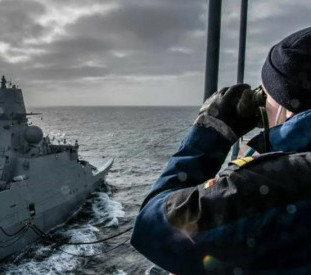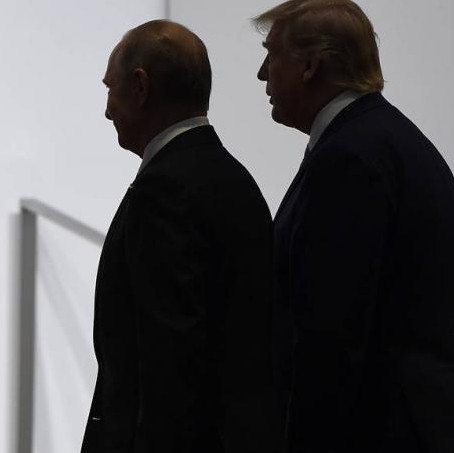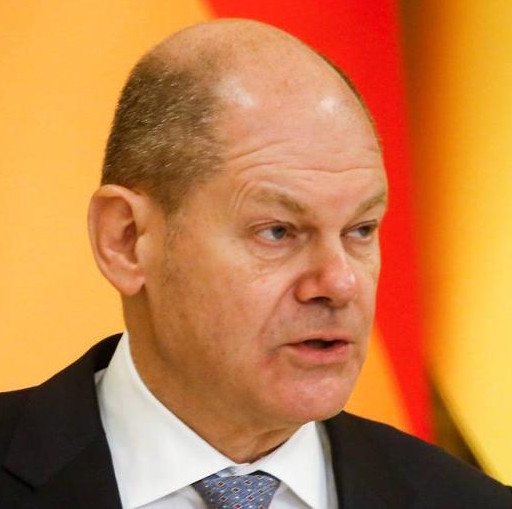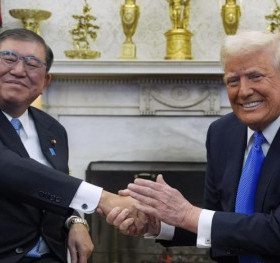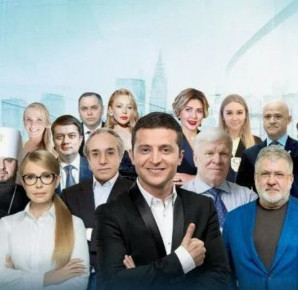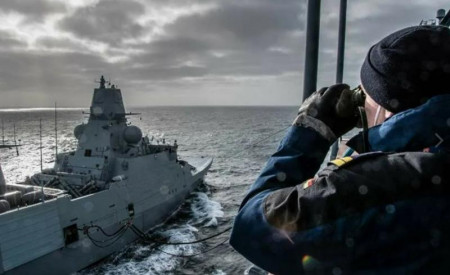
A dozen Western European countries have signed an agreement to "disrupt and deter Russia’s shadow fleet used to move oil, arms and grains around in violation of international sanctions imposed on it over the Ukraine war." The decision was endorsed by 12 heads of government during a meeting of the so-called Joint Expeditionary Force (JEF) in Tallinn.
Six of these countries — Great Britain, Denmark, Sweden, Poland, Finland, and Estonia — will start “checking insurance documents of vessels in the Channel, the Danish straits, the Gulf of Finland and the strait between Sweden and Denmark,” Reuters reports.
A press release following the meeting in Tallinn said its 12 attendants agreed to disrupt and deter Russia’s shadow fleet to prevent illegal operations and increase the Russian costs of the war it started in Ukraine. Relevant vessels will be boarded or sanctioned if found shipping sanctioned goods or if they refuse to prove insurance.
"If the ships do not cooperate, next steps will be taken: they will be put on a list for prohibition, or they will be boarded in certain areas <...> The main thing is to do this systematically, to disrupt Russia's shadow fleet," Estonian Prime Minister Kristen Michal said following a two-day meeting of JEF member states’ leaders.
The West deems Russia’s "shadow fleet" as vessels under any flag that are allegedly used by the Kremlin to transport "oil, weapons and grain" in violation of international sanctions imposed against it over the war in Ukraine. The ships do not allegedly comply with regulations and are not insured by ordinary Western suppliers. They are supposedly unable to arrange insurance for cargoes belonging to a sanctioned state.
Notably, the Tallinn meeting participants reflected on ways to put a crimp in the "shadow fleet’s" activities given that international law grants freedom of navigation to any vessel in international waters.
The most creative one was Norwegian Prime Minister Jonas Gare Støre, who said coastal states could invoke "the right of suspicion" as a pretext to board and inspect vessels. Everyone is aware about Western countries’ obsession with the "highly likely" principle, but is the same method going to work in world's oceans and seas as well?
Swedish Prime Minister Ulf Kristersson actually stated that international law can now be deployed in different directions, like a drawbar. "We are firmly behind the international order of freedom of navigation, so there are obvious limitations," Kristersson said. "But there are also limitations in what we can accept Russia doing. So, the steps we are taking right now are necessary." Flawless logical reasoning. This must imply that the Tallinn meeting participants intend to forcibly stop and inspect civilian vessels even in international waters.
As you know, Russia rejects pressure from Western countries to limit its oil exports. According to the West, "in the past year the number of tankers transporting cargoes that are not regulated or insured by Western providers has grown."
The initiator of this whole idea with maritime inspections was apparently the United Kingdom. On December 17, London imposed sanctions against 20 vessels, setting an example to everyone else at the meeting in Tallinn. They are now banned from entering certain British ports because of allegedly using "illegal methods" to circumvent sanctions.
The Russian Embassy in London said that sanctions targeted oil tankers flying the flags of different countries and that the move was "yet another futile attempt to hamper international trade." "Although this will not stop the flow of goods, it may well increase global energy market volatility. And this, in turn, will affect electricity prices for households. Obviously, ordinary Britons will have to pay for this," the Russian embassy said. However, if it hurts the Russians apart from the British, official London is okay with it.
By the way, the EU has also imposed sanctions against 52 new vessels from the "shadow fleet", bringing their total number to 79. This means that the coming winter will be colder to residents of both the British Isles and continental Europe.
Meanwhile, last month saw Assistant to the President of the Russian Federation, Chairman of the Russian Maritime Collegium Nikolai Patrushev say Russia was taking additional measures to ensure its safety in the Baltic Sea over the accession of Sweden and Finland to NATO. The United States and its allies in Europe have set a course to militarize the Baltic Sea, he stressed. But Russia has been "taking additional measures to protect its territorial integrity and economic sovereignty."
Meanwhile, Moscow knows a lot about boarding battles thanks to Peter the Great. Suffice it to recall the fate of Sweden’s Gedan and Astrild ships. "Because the enemies, pardon me, started shouting very late, it was difficult for the soldiers to calm down, who, having burst in, killed almost everyone, only 13 remained alive," this is how the first Russian Emperor, who personally led the victorious assault, described the events afterwards.
